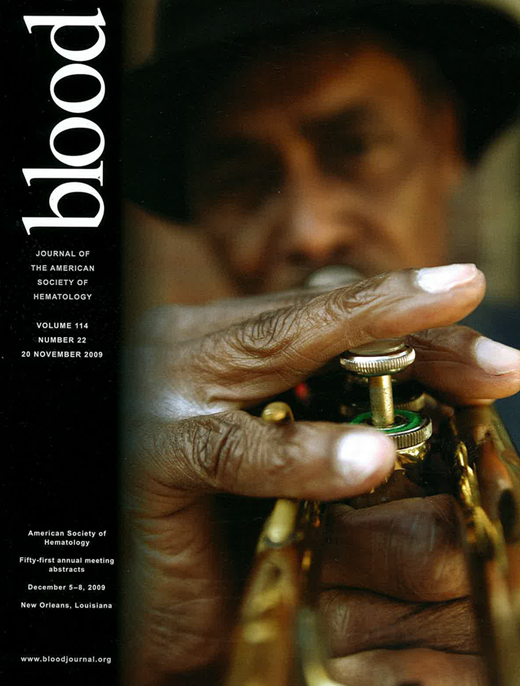Abstract
Abstract 3464
Poster Board III-352
MicroRNA-22 is one of the miRNAs frequently downregulated in human ALL cells and may play an important anti-tumor role in normal hematopoiesis. Histone modification and DNA methylation can have different roles in gene silencing in cancer. To investigate whether histone modifications would contribute to the dysregulation of miRNA-22 in acute lymphoblastic leukemia (ALL), the effect of a histone deacetylase inhibitor, trichostatin A (TSA), on miRNA-22 expression of primary ALL cells was analyzed by real-time PCR. The total number of patients included to this study is 33, including 26 samples of leukemia (18 of ALL and 8 of acute myeloid leukemia) and 7 normal controls. All patient blood samples were collected at the time of diagnosis. We detected a lower expression of pri-miR-22 in PMBCs from ALL patients compared with that from the health volunteers. Treatment with TSA significantly increased pri-miR-22 expression in PMBCs from ALL patients, but not in cells from the health volunteers. Whereas PMBCs from ALL patients and AML patients showed comparable levels of pri-miR-22. TSA treatment had no effect on pri-miR-22 expression in PMBCs from AML patients, suggesting TSA-mediated upregulation of miR-22 transcription in ALL but not AML malignant cells. Moreover, we used MPS assay to analyze the methylation status at the promoter element of miR-22 gene in primary human specimens. No DNA hypermethylation was detected in PMBCs from the health volunteers and patients with either ALL or AML. These data provide further evidence that miR-22 silencing in ALL cells may be DNA methylation-independent. In contrast, accumulation of the repressive histone marker H3K27 trimethylation (H3K27triM) was indentified around the transcriptional start point of the gene, which reduced by TSA treatment.
In conclusion, we showed that histone modification is involved in miRNA dysregulation in human ALL cells. Specifically, the silencing of miR-22 in ALL cells is associated with the accumulation of histone modification in its promoter element of miR-22 gene but independent of DNA methylation. The accumulation of H3K27triM may be a novel epigenetic mechanism for miR-22 silencing in ALL.
No relevant conflicts of interest to declare.
Author notes
Asterisk with author names denotes non-ASH members.

